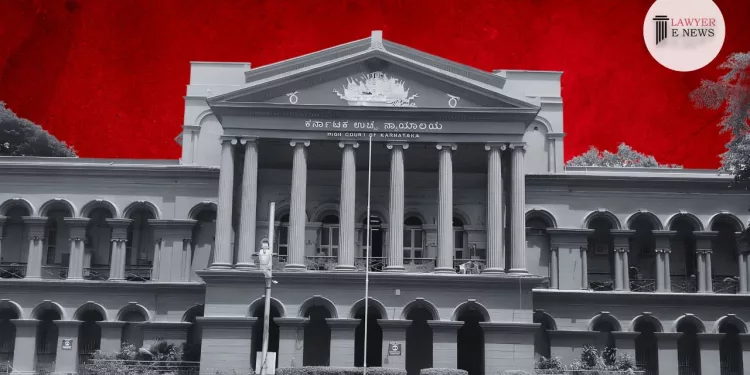Defendants’ Failure to Specify Adverse Possession Date Invalidates Claim: Karnataka High Court

Lack of Continuous, Open, and Hostile Possession Cited in Rejection of Adverse Possession Defense
The Karnataka High Court has set aside the judgment of the First Appellate Court and reinstated the trial court’s decree favoring the plaintiff in a significant case concerning adverse possession and property title. The court ruled that the defendants failed to provide clear and specific details necessary to substantiate their claim of adverse possession over the suit Schedule ‘B’ property. The decision, delivered by Justice M.G.S. Kamal, underscores the stringent requirements for proving adverse possession.
The case involved a Regular Second Appeal (R.S.A. NO. 1366 OF 2018) where Sri. C M Meer Liyakhath Ali, the appellant, contested the First Appellate Court’s judgment that had reversed the trial court’s decree in his favor. The First Appellate Court had held that the respondents (defendants) had perfected their title to the suit Schedule ‘B’ property by adverse possession. However, the High Court found the defendants’ evidence and pleadings insufficient to establish such a claim.
Credibility of Pleadings and Evidence: The High Court emphasized the necessity for explicit and unambiguous pleadings to establish adverse possession. “Defendants must demonstrate continuous, open, and hostile possession for the statutory period,” the court noted, highlighting the inadequacies in the defendants’ claims. The evidence presented was deemed generic and conflicting, failing to meet the legal standards required.
Justice Kamal extensively discussed the elements and burden of proof necessary for adverse possession. The court reiterated that possession must be hostile to the true owner and known to them, and it must be continuous and open. The High Court found that the defendants did not provide specific details of their possession or the date from which it allegedly became adverse to the plaintiff, invalidating their claim.
The judgment referred to several precedents, including T. Anjanappa & Ors. v. Somalingappa & Anr. and Saroop Singh v. Banto & Ors., reinforcing the principle that adverse possession requires clear and specific evidence. The High Court’s decision was consistent with these established legal standards.
Justice Kamal remarked, “The defendants’ failure to specify the date from which possession became adverse and the lack of continuous, open, and hostile possession against the plaintiff’s title invalidate their claim of adverse possession.” This assertion highlighted the deficiencies in the defendants’ case.
The Karnataka High Court’s ruling reinstating the trial court’s decree in favor of the plaintiff sends a strong message about the stringent proof required for adverse possession claims. By setting aside the First Appellate Court’s judgment, the High Court reaffirmed the plaintiff’s title and possession over the disputed property. This decision underscores the necessity for defendants to provide precise and compelling evidence when asserting adverse possession, ensuring that property rights are upheld based on clear and unequivocal grounds.
Date of Decision: 16th April 2024
Sri. C M Meer Liyakhath Ali v. Smt Vasanthamma & Ors.






